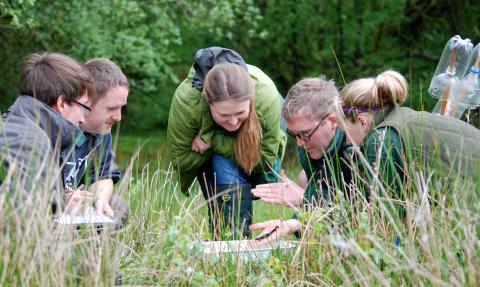
Survey by Adrian Wallington
Wildlife traineeships
I can’t praise this traineeship highly enough. I’ve learnt so much in the last six months alone.Wildlife Trainee
If you're looking for your first paid role in conservation but don't have the skills and experience employers are looking for yet, why not have a look at our BBOWT Wildlife Traineeships? Our Traineeships offer excellent opportunities to gain the vital skills and experience needed to gain paid employment in the conservation sector.
Many passionate and talented people want to pursue a career in conservation, but lack the necessary skills and experience. Our Traineeships provide essential skills and experience required through training and work-based learning. The hugely successful BBOWT Traineeship scheme has been in place for many years and we are proud that so many of our Trainees have gone on to develop their careers in conservation.
About the scheme
The Wildlife Traineeship scheme provides over 20 Traineeships across Berkshire, Buckinghamshire and Oxfordshire each year. We have two types of Traineeship: Conservation (Reserves Management) and Biodiversity (Surveying).
Trainees generally attend three days a week for the length of their Traineeship, undertaking practical experience and training that will boost their chances of successfully gaining paid employment on completion.
What our Trainees do
Trainees spend most of their time in relevant occupational activities, providing sufficient meaningful experience for the Trainees to have something they can put on their CV and to use when they apply for jobs at the end of their Traineeship.
Experience provided
The mix of activities varies, depending on the Trainee’s host placement. The placements vary significantly and the trainee may be based on a single nature reserve, cover a living landscape, or cover reserves across a whole county.
Experience gained will be relevant to the nature and location of each traineeship and may include:
- habitat management
- species identification
- rapid assessment botanical surveys
- using conservation management systems
- managing livestock
- volunteer management
- leading guided walks and talks
- health and safety
- access and interpretation work
What training is on offer?
In addition to the vital skills acquired through occupational activities, the Trainee scheme develops skills through training. There is a programme of core training, with relevant modules available to Trainees. Trainees will be supported by their mentor through regular one to one meetings to set, review against and update objectives that are relevant to the Trainee's development plan.
Core training
The core training is largely conducted in-house, by subject-matter experts - usually members of staff. The programme comprises several one day courses, which are reinforced by work-based activities to consolidate the learning and give trainees real experience.
All trainees take part in Introduction to BBOWT, and Interview and Application Skills training. In addition, additional optional relevant training is available. Examples of the optional modules available include:
- Introduction to Botany
- Reserves Management Planning
- Conservation Grazing
- Managing Livestock on Reserves
- Publicity and Social Media
- Safety on Site
- Tools workshop
- Leading Practical Groups (Volunteers)
- Leading a Guided Walk
Individual Personal Development Plan
At the start of the Traineeship, each Trainee will meet with their mentor to agree objectives in line with the Trainee's development plan. This process provides Trainees with the opportunity to set relevant objectives for the duration of their Traineeship. These are reviewed and updated regularly during one to one meetings with their mentor.
In addition to the training and experience opportunities above, geared to assist Trainees in entering the conservation workforce, the Trust provides Trainees with relevant nationally certified training and compensates for some travel expenses.
What you'll need
Applicants should have a keen interest in UK wildlife conservation, a good level of fitness and be willing to supervise and lead volunteers.
A commitment of three days per week for 12 months is essential.
See what some of our trainees get up to
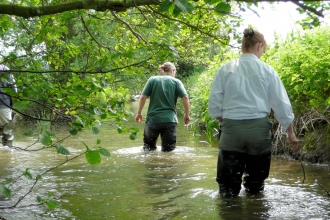
Spotlight on a volunteer
In the next in our series, volunteering administrator Wayne Brown chats to Sam Darley about her time as an ecology trainee
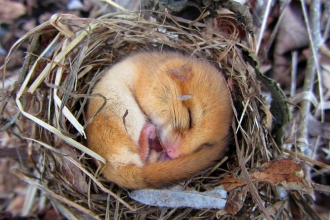
On the search for the elusive hazel dormouse
Ecology trainee, Samantha Darley went looking for hazel dormice in Berkshire, Buckinghamshire and Oxfordshire. What did she find?
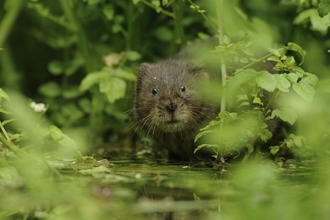
Surveying for water voles, Britain's fastest declining mammal
Dave Dunleavy, ecology trainee, describes how to survey for water voles and how BBOWT's Water Vole Recovery Project has been…
Stay up-to-date with our work
Sign up below to receive the latest news from BBOWT, tips about how you can help wildlife, plus information on how you can get involved.
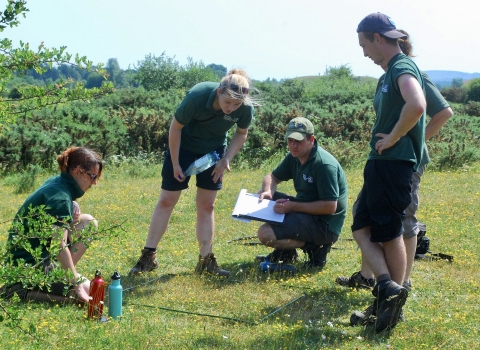
BBOWT trainees by Adrian Wallington
Current traineeship opportunities
See our current traineeship opportunitiesVolunteer by Jess Gallagher
